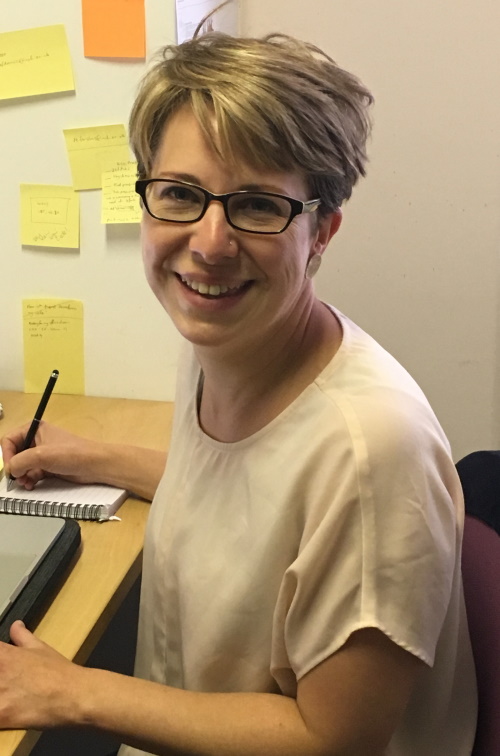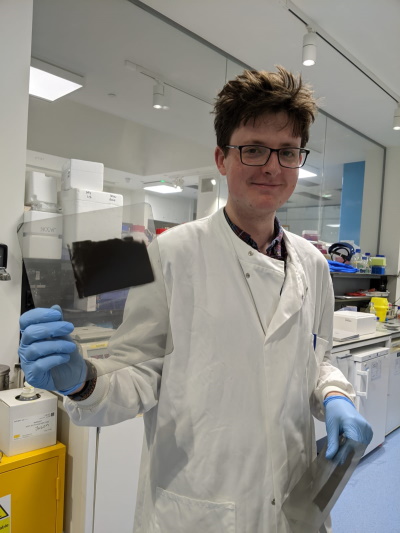
Helen Rowe

Helen Rowe has a long-standing interest in regulation of the human immune system. She completed an undergraduate degree in Biological Sciences at Warwick University and became interested in Immunology after an intercalated year at Novartis spent making human dendritic cells. She then obtained her PhD from University College London, working on cancer vaccines. Her postdoctoral studies focused on epigenetic regulation of transposable elements and her work discovered that TRIM28 silences endogenous retroviruses in early development. She was awarded a Wellcome Trust Fellowship to establish her lab at University College London. She was subsequently awarded an ERC starting grant and moved her lab to Queen Mary University in 2020. Her lab’s work has shown that the human silencing hub (HUSH complex) suppresses LINE-1 elements and endogenous retroviruses. Her lab has also identified that the HUSH complex acts as a gatekeeper of type I interferon responses and that zinc finger proteins regulate cell fate. In 2024 she was awarded a Cancer Research UK Programme Foundation Award to study epigenetic regulation of immune evasion in cancer. Her long-term goal is to contribute to translating fundamental science discoveries into immunotherapies and cancer vaccines.
Emma Welsh
Emma holds a BSc Honours in Biomedical Science (University of Brighton) and an MRes in Translational Cancer Medicine (King’s College London). She moved into Rheumatology as a research assistant in paediatric rheumatology at the UCL Institute of Child Health with Great Ormond Street Hospital where she worked on biomarkers for disease flare in juvenile idiopathic arthritis. Emma completed her PhD in immunogenetics at King’s College London investigating interleukin-36 signalling in systemic lupus erythematosus. Emma’s postdoctoral position in the Rowe lab is funded by Cancer Research UK and focusses on utilising single cell RNA-sequencing to track genetic changes over lung cancer evolution. In her free time she enjoys cooking new recipes and chatting to the family guinea pigs Dave and Ron
Jorn Stok
Jorn completed his BSc Biomedical Sciences and MSc Infection and Immunity at Utrecht University, The Netherlands. During his MSc, he performed research internships at the lab of prof. dr. Linde Meyaard (Wilhelmina Children’s Hospital, The Netherlands), studying the activating receptor CD200R1L on neutrophils, and the lab of prof. dr. Lori Frappier (University of Toronto), studying the protein-protein interactions of early lytic proteins in EBV infection. In 2019, he joined the lab of dr. Annemarthe van der Veen at the Leiden University Medical Center as PhD candidate, where he studied RNA receptors of the innate immune system and the role of non-coding RNAs in autoinflammatory diseases and viral infection. After having completed his PhD in 2024, he joined the Rowe lab to study how and which LINE-1 elements can activate type I interferon responses in MPP8 deficiency, as well as the immune evasion tactics of cancer cells that are unresponsive to MPP8 depletion. His work is funded by a Cancer Research UK grant. In his free time he loves to bake sourdough bread, play piano and look after his chili plants!
Holly Jefferson
Holly completed her BSc Natural Sciences degree at the University of Bath, including a placement year as a Research Assistant at the University of Illinois at Chicago. Since graduating, she has worked as a Research Assistant at UCL and Imperial College. Her PhD is investigating the regulation of antigen responses by the HUSH complex in Non-Small Cell Lung Cancer and is funded by CRUK. In her free time, she is an avid book reader and dancer.
James Holt

James completed a BSc in biomedical sciences at Durham University followed by an MSc in infection and immunity at UCL. He then worked as a research assistant in the Rowe lab before starting his PhD. His PhD is jointly funded by Pierre Maillard’s lab (QMUL) and the Rowe lab through a Barts Charity award. James aims to investigate the role of transposable elements in activating RNA interference and interferons in pluripotent stem cells.